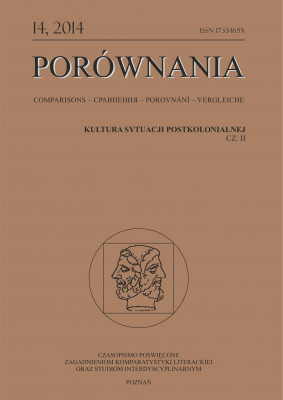An Alternative Measure of Greatness? – Postcolonial Determinants of the Polish Hegemonic Visions of History in Selected Alternative History Novels
The aim of this paper is to show the significance of the postcolonial determinants for understanding the specificity of the Polish alternate history novels. The author argues that one of the most meaningful repercussions of postcolonialism is the specific self-consciousness of the insignificant subalterns and, as a consequence, the inferiority complex. More importantly, the „subaltern state of mind” lasts even after the postcolonial subordination ends. Paradoxically, the inferiority complex could be manifested as a belief in one’s glorious and magnified past. Such a conviction is evoked inter alia by literature, which is a type of mapping the world and describing cultural diversity. In this scope, literature is a mirror of ideology and policy. Alternate history novels are interesting examples of creating a false magnificent past. Therefore, applying the terms such as „writing the nation”, „national pedagogy” and „necessary fictions” (H. Bhabha) the author discusses the capability of the selected alternate history novels for fulfilling the subalterns’ dreams about greatness, power and political importance. The literary works of Marcin Wolski („Alterland”, „Mocarstwo”, „Jedna przegrana bitwa”), Andrzej Ziemiański („Bomba Heisenberga”), Dariusz Spychalski („Krzyżacki poker”), Maciej Parowski („Burza. Ucieczka z Warszawy ‘40”) and the journalistic, non-fictional products of pop-history, such as “Pakt Ribbentrop-Beck, czyli jak Polacy mogli u boku III Rzeszy pokonać Związek Sowiecki” by Piotr Zychowicz, describe fictional, alternates, worlds in which Poland conquered a significant part of the world, defeated their enemies in the Second World War and subordinated the Soviet Union as well as smaller neighbours. Thence, the above mentioned authors give the subalterns the necessary fiction, a kind of self-therapy. The latter could be also understood, the author concludes, as the effect of postcolonial trauma, resentments and unresolved issues stemming from subjugation.
| Article Title | Type | Size |
|---|---|---|
| Lemann | [pdf] | [311 KB] |
